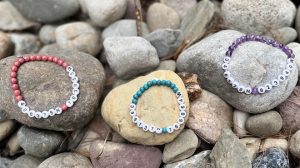“There is no silver bullet to understand why [suicide and self-harm occur]. Suicide and self-harm are idiosyncratic to the individual, unique to a person’s response to stress,” according to Jack Klott, a prominent suicidologist.
However, bullets are one of the main causes of suicides in the United States. At a recent meeting in Boston, Klott highlighted the most recent research findings and reported that white males have the highest rates of suicide and that 90 percent of the time the act is carried out with a firearm. And the group that has the lowest suicide rate? African American women 65 years and older. Why is there such disparity between white males and older African American females? Klott notes that African American women, when asked what they did in a time of crisis, responded saying, “I try to figure a way out — I keep trying until I find what works.” This is the foundation of resilience, along with social connection and a sense of purpose.
Klott also reminds us that, while white women got the vote in 1920, African Americans’ empowerment began with the Civil Rights Act of 1957 and, especially, with the Voting Rights Act of 1965. Is the upside of this situation that African Americans are enduring and hopeful for change? It certainly indicates their lack of entitlement for what should have been intrinsically theirs.
Meanwhile, white males have pretty much always had a sense of entitlement. Klott refers to the Jungian analyst, James Hillman, as to how this sense of entitlement may tie in with rates of suicide among white males. What happens when what you thought you had — entitlement, control, power, immunity to anything bad happening — is lost? Might such sense of loss of place in the universe lead to suicide (or in some cases, homicide, and then suicide)?
Klott believes that one practical antidote to suicide is gun safety. He discussed a program supported by the NRA that provided thumb sensor locks on guns. Where there is access to guns in the house, the suicide risk rises. Gun control and gun safety are part of the solution, he says. We also need to find antidotes to the four pillars of suicide: hopelessness, isolation, self-hate, and inability to cope.
Suicide is incongruent to our neurological wiring. An individual commits suicide as a protection against great pain, notes Klott. Healing this pain might include building resilience, making connections, finding reasons for living, engendering hope for the future.
Despite all our best efforts as parents, as therapists, as friends, as family, another’s choice of suicide is ultimately beyond our control. Nevertheless, we can have hope for a future where it is exceedingly rare and do what we can to prevent it from happening.
For more information, note the following:
- Klott, Jack, Suicide and Psychological Pain: Prevention that Works(2012).
- Hillman, James, Suicide and the Soul(1998).
About Kayta Gajdos
Dr. Kathleen Curzie Gajdos ("Kayta") is a licensed psychologist (Pennsylvania and Delaware) who has worked with individuals, couples, and families with a spectrum of problems. She has experience and training in the fields of alcohol and drug addictions, hypnosis, family therapy, Jungian theory, Gestalt therapy, EMDR, and bereavement. Dr. Gajdos developed a private practice in the Pittsburgh area, and was affiliated with the Family Therapy Institute of Western Psychiatric Institute and Clinic, having written numerous articles for the Family Therapy Newsletter there. She has published in the American Psychological Association Bulletin, the Family Psychologist, and in the Swedenborgian publications, Chrysalis and The Messenger. Dr. Gajdos has taught at the college level, most recently for West Chester University and Wilmington College, and has served as field faculty for Vermont College of Norwich University the Union Institute's Center for Distance Learning, Cincinnati, Ohio. She has also served as consulting psychologist to the Irene Stacy Community MH/MR Center in Western Pennsylvania where she supervised psychologists in training. Currently active in disaster relief, Dr. Gajdos serves with the American Red Cross and participated in Hurricane Katrina relief efforts as a member of teams from the Department of Health and Human Services' Substance Abuse and Mental Health Services Administration.Now living in Chadds Ford, in the Brandywine Valley of eastern Pennsylvania, Dr. Gajdos combines her private practice working with individuals, couples and families, with leading workshops on such topics as grief and healing, the impact of multigenerational grief and trauma shame, the shadow and self, Women Who Run with the Wolves, motherless daughters, and mediation and relaxation. Each year at Temenos Retreat Center in West Chester, PA she leads a griefs of birthing ritual for those who have suffered losses of procreation (abortions, miscarriages, infertility, etc.); she also holds yearly A Day of Re-Collection at Temenos.Dr. Gajdos holds Master's degrees in both philosophy and clinical psychology and received her Ph.D. in counseling at the University of Pittsburgh. Among her professional affiliations, she includes having been a founding member and board member of the C.G. Jung Educational Center of Pittsburgh, as well as being listed in Who's Who of American Women. Currently, she is a member of the American Psychological Association, The Pennsylvania Psychological Association, the Delaware Psychological Association, the American Family Therapy Academy, The Association for Death Education and Counseling, and the Delaware County Mental Health and Mental Retardation Board. Woven into her professional career are Dr. Gajdos' pursuits of dancing, singing, and writing poetry.
- Web |
- More Posts(250)


Comments